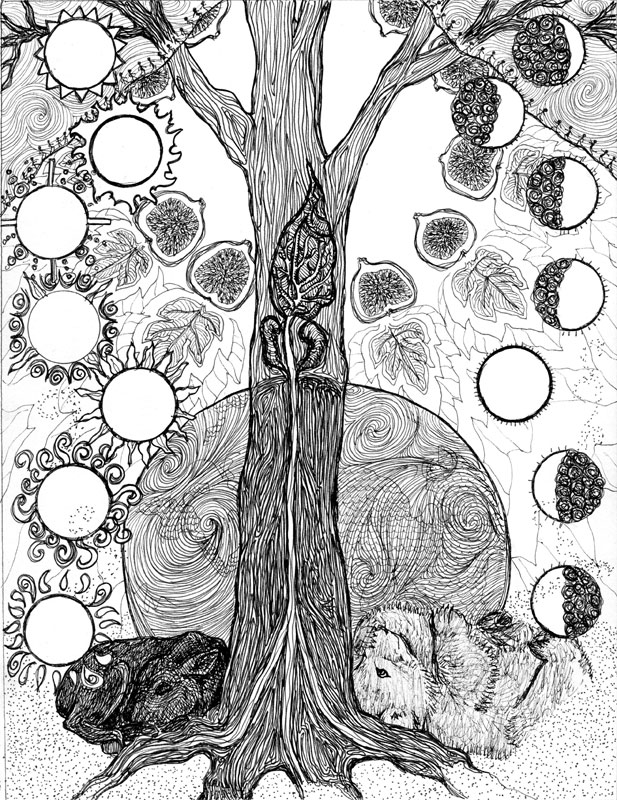New Ark United Church of Christ,
Newark, DE
December 8, 2013
When I was in college, I marched
against South Africa’s apartheid. It was my first protest march. “What do we want? Divestment!
When do we want it? Now!” Friends and classmates from Westfield State
College, along with hundreds of others from various schools and walks of life
converged on the steps of the city hall in Springfield, MA on a sunny, spring
day to declare our hopes for a peaceful end to apartheid.
Whenever
we march and make protest, we do so with hopes rather than expectations. For we know that “our struggle
is not against enemies of blood and flesh, but against the rulers, against the
authorities, against the cosmic powers of this present darkness, against the
spiritual forces of evil in the heavenly places”, as Paul says to the church in
Ephesus. And so we temper our
expectations with a dose of reality, recognizing that a good and lasting peace
takes a long time to achieve.
It did take a long time for
apartheid to come to an end, for the people of South Africa to be one nation, for
Nelson Mandela to be released from prison.
27 years. I doubt that anyone in
the apartheid regime expected Mandela to survive prison, let alone be
released. He was 71 years old when he
walked out of his cell at Victor Verster Prison. He then went on to become the first black
president of South Africa, enlisting his predecessor, F.W. de Klerk, as one of
his deputies. He formed a Government of
National Unity, blending an administration of white and black South
Africans. He initiated the Truth and
Reconciliation Commission, bringing to light human rights abuses on both sides,
so that the process of healing and potential forgiveness could begin.
I doubt anyone expected any of this to
work. The memories of violence, fear,
and overwhelming death were still fresh and visceral. Some did not expect Mandela to survive his
presidency, that he would be assassinated not only for his radical initiatives but
for simply being black. Then to live to
the age of 95; a black South African man living 9 ½ decades! Who would have expected that? From all appearances, the odds were stacked
against him.
 |
| Madiba, father of a nation |
It’s not that people didn’t have
faith. Millions around the world
believed in the rightness, the justice of his cause. We human beings always seem to be caught
between what is and what could be. So we
have hopes, that we may not risk our expectations to despair.
The people of the southern kingdom
of Judah may have even given up hope in their Babylonian captivity. After approximately 50 years of exile, who
would think that they would be able to return home? And if so, what was left of not only their
homeland but of their faith and God’s desire to be in covenant with them? Hindsight isn’t really 20/20. When bad stuff happens, our judgment and
memory are clouded with emotion. We look
for who is to blame, sometimes holding ourselves not just accountable but
worthy of shame. And so God’s people
blamed themselves for their exile, believing that because of their sin, God had
abandoned them to the whims of their captors.
The book of Isaiah is believed to
have three authors, writing at different points in Judah’s history. Isaiah 11 is believed to have been written
while Judah was still in exile in Babylon.
These words surely spoke to the people’s hopes but this prophecy was not
what was expected. “A shoot shall come out
from the stump of Jesse, and a branch shall grow out of his roots.” Out of something strong and established yet
cut down shall come forth something vulnerable, something growing where nothing
should. God judging not with what the
eyes can see or what the ears can hear (as we do) but with righteousness, with integrity
and equity. And then all those predators
and prey shacking up like old friends, with a child at the front of God’s
parade. Not what was expected but
certainly a dream worth longing for.
But we know that receiving not what was expected is not
always a good surprise. We don’t expect
cancer. Or a stillbirth. Or a gunman in an elementary school. Or a natural disaster taking away a slew of homes. Or the well-meaning but insensitive comments
of others when we are hurting. Or the rich getting ever
richer and insulated and the poor continuing to get even poorer. God upends our expectations of despair with
utopian dreams when we have lost hope but what of God when it goes the other
way?
Certainly the people of Judah and Israel did not expect
the Greeks and the Romans to be an occupying force in their country. It was one thing to be carried off into
exile; it was quite another to be rendered to a police state in one’s own land. John the Baptizer was preaching a baptism of
repentance, demanding that God’s people turn their lives toward God’s
righteousness; that they turn in their ‘old lives for a kingdom life’. In
John’s hopes for the expected Messiah we can hear intimations of a longing for
a zealot: someone who will clean not only the spiritual house of the Lord but
also the land of Judah and Israel from foreign occupation.
 |
| The peaceable kingdom |
And though Jesus said that he had come not to bring peace
but a sword, he also said that those who live by the sword, die by the
sword. He was given a bandit’s, a
zealot’s death but he went to it willingly, even offering forgiveness from the cross. Jesus hoped that there would be peace between
God and human beings, but it would take longer than his lifetime. Frederick Buechner wrote, “For Jesus, peace
seems not to have meant the absence of struggle but the presence of love.”
To make peace with a world full of beauty and brutality can
take a long time. And to make peace with
the God, the power, the mystery that created it can take even longer. Oftentimes, we ascribe to God, that power
greater than ourselves, the evil that we did not expect, that gave us
unimaginable grief, for we do not want to make peace with that which does not
give peace. Though we would exile
ourselves from God, God welcomes us home anyway. Though we do not even know the way home, God
sends us Jesus, a fiery, fierce yet peace-filled savior. Though we do not know whether we can love or
forgive or make peace yet again, God waits for us.
And maybe that’s what Advent is all about: God waiting for us while we’re coming to
peace with what this whole existence is about.
Where does life come from and where does consciousness go when life is
over? Who are you? Who am I?
Who are we? How can I live
peacefully with myself and with other human beings?
Here are some signs that we might be experiencing inner
peace:
·
Tendency
to think and act spontaneously rather than from fear based on past experiences;
·
Ability
to enjoy each moment;
·
Loss
of interest in judging others;
·
Loss
of interest in judging self;
·
Loss
of interest in interpreting the actions of others;
·
Loss
of interest in pursuing conflict;
·
Loss
of ability to worry;
·
Frequent
periods of appreciation;
·
Feelings
of connectedness with others and with nature;
·
Increased
susceptibility to acts of kindness extended by others;
·
An
increased tendency to let things happen rather than make them happen;
·
Uncontrollable
urge to extend kindness;
·
Gaining
the ability to love without expecting anything in return.
Not what you’d expect,
these signs of inner peace. And I think
before we can make peace with God or with our neighbor, we have to make peace
with ourselves. Accept ourselves, all of
it, our flaws and our unique capabilities, our sins and how we can be such a
blessing, our hurtful ways and our ability to love, be courageous and humble in
heart.
For in this way the wolf and the lamb can lie down within
us. For in this way a child can lead us.
Peace be with you.
Amen.








